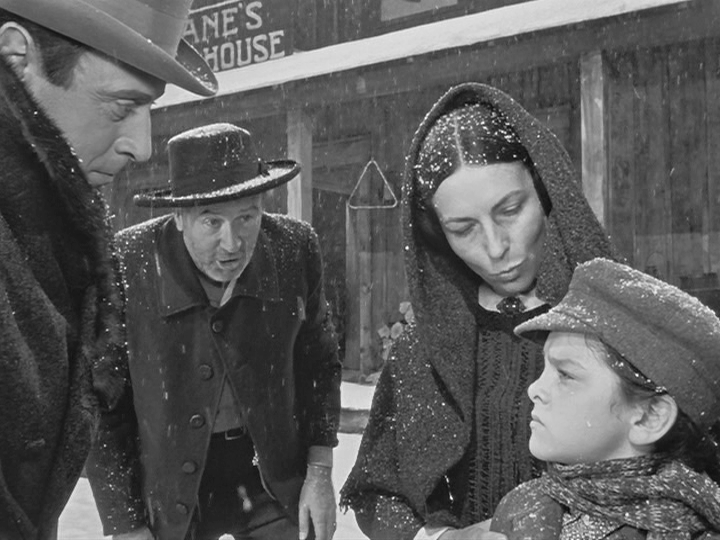
Friday
An interchange I’ve been having with Lory of Emerald City Book Review, a fellow Carleton College alum, has reminded me of a poem my father wrote about Citizen Kane. We were probing Donald Trump’s psychology, and Scott Bates’s poem on Donald Trump’s favorite film supports Lory’s observations.
I was appalled, as we should all be, by the Trump administration’s child separation policies, to which Lory replied,
Have you read Mary L. Trump’s Too Much and Never Enough? I’m reading it now and it’s interesting. He is the product of a horribly dysfunctional family, I would say brain damaged by trauma and psychological abuse. His mother was absent, ill, or powerless during the crucial period of his childhood and his father was a sociopath. He’s repeating his personal drama through these horrible acts, as such damaged people tend to do. So sad, but it’s society’s task to stop it and not put him in a position of responsibility. I just can’t understand why so many are supporting him. Are they all products of dyfunction and abuse too? How deep does the problem go?
When I suggested that racism drives many Trump supporters, Lory folded that into the Trump family drama:
Racism was certainly embedded in the family too – the book points out that Trump Sr.’s real estate projects were intended for the white population, which historically lived in certain parts of the outer boroughs, and there was at least one lawsuit mentioned over exclusion of black tenants.
Will this ever be worked through? Not unless one changes direction and throws off one’s inheritance. Not something we can expect of Trump, but anyone with a conscience has to struggle with it now.
I grew up with my father’s passion for Citizen Kane, and in 1987 we collaborated on a Cinema Journal article that allowed me to explore what the film had meant to members of his generation, including Orson Welles. (You can find “Fiery Speech in a World of Shadows: Rosebud’s Impact on Early Audiences” if you google it.”) The following observation, about my father’s first encounter with the film while a freshman at Carleton, provided the article with its emotional and intellectual core:
When I first saw Citizen Kane with my college friends in 1941, it was in an America undergoing the powerful pressures of a coming war, full of populist excitement and revolutionary foreboding. But cynical Depression kids that we were, we had little hope for salvation through armed uprising. Nor did we believe any longer in America’s self-proclaimed values. Nevertheless, those values were still part of us, and it was America’s blind self-destruction that we instinctively recognized in the shattering experience of watching a little wooden sled go up in flames. From the moment the huge lips opened and said “Rosebud,” to the sled’s final immolation in the furnace of our desires, we were both thrilled and terror-stricken. It was the flaming consummation of sex and politics that we had been looking for in movie theatres all our young lives. We somehow knew that we had experienced our own flaming love-death and that it had taken place in the tragic heart of our country. Welles and Mankiewicz had revealed, in two short hours of perception, how energetically Miss America had been raped of her dream, of her promise, of her rose; and then how she had dutifully prostituted us, her own bastard children. We no longer had a place we could call home. Pessimistically, and yet with the hope of finding some sort of transcendence through great eschatological events, we let ourselves get drafted into the army…
In this grand drama, Kane is the autocrat who, as Lory puts it, has himself been “brain damaged by trauma and psychological abuse,” goes on to wreak revenge on the rest of the world. As he has been betrayed by his mother (rejected like Cain), so he betrays the women he invites into his life, even as (or rather, because) he thinks he sees tender mother love in their initial innocence. The final result in a heartless narcissist who uses his wealth and celebrity to destroy everything around him. As Lory says of Trump, “He’s repeating his personal drama through these horrible acts, as such damaged people tend to do.”
Citizen Cain
Am I my brother’s keeper?
Out of her cozy snow-covered
cabin of a crystal ball
his mother sold
him to the banks;
so he bought Venuses
in Europe and started
a war in the Caribbean.
And since he could not slide
on his little wooden sled
back into his mother’s house
or change her land of silver and politics
into a sunny pleasure dome
with Abyssinian jazz and picnic on the beach,
he grew roses and power
and ravished the niece of a President
and then a simple singing girl
and then the motherland.
In Trump’s case, substitute Mar-a-Lago for Kane’s Xanadu while seeing his sexual assault and harassment cases as representing a longing for lost innocence, coupled with revenge for mother betrayal. Roses represent the innocence, power the way to make sure he is never hurt that way again.
Late in the film, the reporter Thompson observes that he can’t help but feel sorry for Kane, and Kane’s ex-wife Susan Alexander agrees. It’s useful to understand the psychology of a wannabe tyrant.
To understand is not to excuse, however. And it certainly doesn’t excuse all the Republicans who refuse to call him out.

